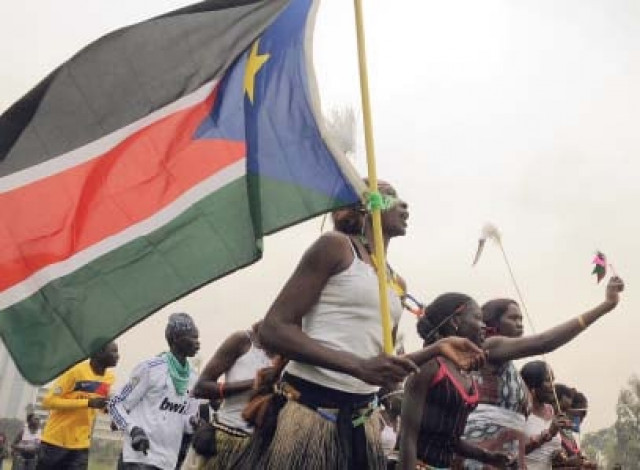South Sudan declares independence: Major world powers recognise newest member
President Omar al Bashir guest of honour at celebrations.

The US, UK, France and EU announced on Saturday the decision to formally recognise the newly created Republic of South Sudan and vowed to support it.
“As Southern Sudanese undertake the hard work of building their new country, the US pledges our partnership as they seek the security, development and responsive governance that can fulfil their aspirations and respect their human rights,” US President Barack Obama said.
South Sudan’s Salva Kiir was sworn in as president of the world’s newest nation.
South Sudan’s independence comes after more than 50 years of conflict between the southern rebels and successive Khartoum governments.
The 2005 Comprehensive Peace Agreement (CPA) that finally ended the conflict, and which was signed under intense pressure from foreign countries, particularly the US, Britain and Norway, paved the way for a referendum on southern independence in January.
Around 99 per cent of southerners voted to split from the north.
Amidst formal recognition, celebrations erupted across Juba where South Sudan proclaimed its independence.
At the ceremony attended by a host of international dignitaries, the speaker of parliament, James Wani Igga, read out the declaration of the south’s secession from the north. South Sudan’s national flag was then raised to wild applause, tears and song. “We shall never, never surrender,” the crowd chanted, as people whistled and wiped tears from their eyes.
Sudanese President Omar al Bashir, the guest of honour, was present at the ceremony in spite of being marked ‘wanted’ by the International Criminal Court on charges of crimes against humanity in Darfur.
Concerns about future remain
In spite of the celebrations however, analysts fear violence may be reignited in South Sudan due to unresolved issues. The border the south shares with the north remains ill-defined and border disputes remain. Talks in Addis Ababa aimed at resolving disputes have so far failed.
Published in The Express Tribune, July 10th, 2011.



















COMMENTS
Comments are moderated and generally will be posted if they are on-topic and not abusive.
For more information, please see our Comments FAQ